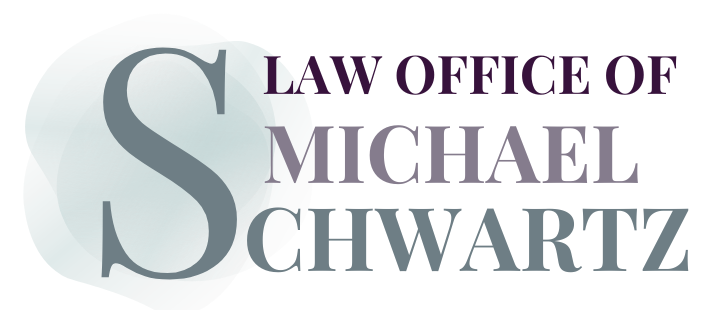What is the Bankruptcy Administration Improvement Act of 2025?
The bankruptcy system in America serves as a critical safety net for millions of individuals and businesses facing overwhelming debt. However, like any complex legal framework, it requires periodic updates to remain effective and fair. The Bankruptcy Administration Improvement Act of 2025 represents one such crucial update, addressing long-overdue reforms that could significantly impact how bankruptcy cases are administered across the country.
This proposed legislation tackles fundamental issues within the bankruptcy system, from trustee compensation that hasn’t been updated in over three decades to the preservation of essential judicial resources. Understanding these changes is vital for anyone considering bankruptcy, legal professionals working in the field, or businesses that may encounter bankruptcy proceedings.
The reforms proposed in this act could reshape the landscape of bankruptcy administration, potentially leading to more efficient case processing, better oversight, and improved outcomes for all parties involved. Bankruptcy attorney Michael Schwartz will break down what this legislation entails and how it might affect the bankruptcy process for those considering or in the middle of filing for bankruptcy.
Legislative Background
The Bankruptcy Administration Improvement Act of 2025 exists in two versions within the 119th U.S. Congress. The House introduced H.R. 3867 on June 10, 2025, which was subsequently referred to the Committee on the Judiciary. Meanwhile, the Senate version, S. 1659, gained significant momentum when it passed by unanimous consent on August 1, 2025.
This bipartisan support suggests widespread recognition that the current bankruptcy system needs modernization. The legislation’s primary objective centers on updating a system that has remained largely unchanged in key areas for decades, despite significant economic shifts and inflation.
The bill addresses three fundamental challenges: outdated compensation structures, funding mechanisms for the U.S. Trustee Program, and the need for adequate judicial resources to handle bankruptcy caseloads efficiently.
Key Provisions of the Bankruptcy Administration Act
Increased Compensation for Chapter 7 Trustees
The most significant change proposed in the Bankruptcy Administration Improvement Act of 2025 involves doubling the base compensation for Chapter 7 bankruptcy trustees from $60 to $120 per case. This represents the first adjustment since 1994, when the fee was initially set.
To put this in perspective, $60 in 1994 would be equivalent to approximately $120 in 2025 dollars when adjusted for inflation. The current compensation structure has made it increasingly difficult to attract and retain qualified trustees, potentially compromising the quality of case administration.
Modifications to Various Fees
To fund these compensation increases and support the United States Trustee System, the legislation proposes adjustments to certain bankruptcy fees. These modifications are designed to maintain the self-funded nature of the bankruptcy system while ensuring adequate resources for proper administration.
The fee structure changes aim to create a more sustainable funding model that can adapt to future needs without requiring frequent legislative intervention.
Extension of Temporary Bankruptcy Judgeships
The bill also addresses judicial capacity by extending the terms of existing temporary bankruptcy judgeships. This provision recognizes the ongoing demand for bankruptcy services and ensures courts can handle current and anticipated caseloads without creating backlogs that could delay critical proceedings.
Direct Impacts of the Reforms
Benefits for Chapter 7 Trustees
The compensation increase addresses a critical staffing challenge within the bankruptcy system. Higher pay can attract more qualified professionals to serve as trustees, potentially improving the quality of case administration and oversight.
Experienced trustees bring valuable skills to complex cases, ensuring that assets are properly identified, evaluated, and distributed according to legal requirements. Better compensation helps retain these skilled professionals within the system.
Implications for the Bankruptcy System
These bankruptcy law changes represent a significant investment in system infrastructure. By properly funding trustee services and maintaining adequate judicial resources, the reforms aim to create a more robust and reliable bankruptcy process.
The self-funded nature of these improvements means the system can maintain its independence while ensuring adequate resources for effective operation.
Effects on Debtors and Creditors
While debtors may face slightly higher fees due to the funding mechanisms, the improved system efficiency could offset these costs through faster processing and better case management. Creditors may benefit from more thorough asset recovery and distribution processes.
Building a More Effective Bankruptcy System
The Bankruptcy Administration Improvement Act of 2025 represents a thoughtful approach to modernizing a critical component of America’s financial infrastructure. By addressing compensation issues that have persisted for over three decades and ensuring adequate judicial resources, the legislation aims to create a more effective and sustainable bankruptcy system.
These reforms acknowledge that the bankruptcy system serves a vital public function, providing a fresh start for overwhelmed debtors while ensuring fair treatment of creditors. Proper funding and administration are essential to maintaining this delicate balance.
The bipartisan support for this legislation suggests a shared understanding that a well-functioning bankruptcy system benefits the entire economy by providing predictable processes for addressing financial distress and enabling productive reallocation of resources.
Get Legal Guidance Through Your Financial Challenges
Are you drowning in debt? Do you want to stop foreclosure on your home? Do you want a brighter financial future? With over 20 years in bankruptcy law, Michael Schwartz can help you accomplish your financial goals.
The Law Office of Michael Schwartz strives to provide exceptional legal services, helping you regain your financial stability. We will guide you through the bankruptcy process and help demystify the complex world of bankruptcy laws.
Through our bankruptcy counseling service, we can review your financial situation and recommend the right solution for you. During your first meeting, we will discuss bankruptcy options, such as Chapter 7 and Chapter 13, and their respective pros and cons. We will discuss all of your options, including bankruptcy, debt settlement programs, your credit report, and credit counseling.
Michael Schwartz offers bankruptcy and debt settlement options to individuals in Bucks County, Delaware County, Montgomery County, and the surrounding Philadelphia region. We will help you to make the decision that is right for you. Contact us today to learn more.


